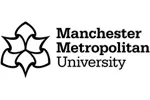We're moving! This site will be relocating to goingto.university in 2026. Please update your bookmarks to the new address.


the United Kingdom
Manchester Metropolitan University| The award | How you will study | Study duration | Course start | Domestic course fees | International course fees |
|---|---|---|---|---|---|
| MSc | Full-time, Part-time | 1 - 2 year | September | - | - |
As the role of digital technologies, from social media through to algorithms and artificial intelligence, continue to play a prominent role in every aspect of social life, research into our digital society is becoming more and more significant. Many societies have seen a dramatic change in the way transport, consumption and other services are managed and delivered through apps, platforms, and other digital services. However, with the positives come many challenges, such as the inequalities digital technology generates in society and the rise of fake news, misinformation and cyberwarfare.
MSc Digital Society allows students to study this relationship between digital technologies and society in an interdisciplinary and research-informed environment. We aim to equip students with the tools needed to become experts in understanding how digital technologies shape societies, nationally and internationally, through a range of units that take a global view; alongside research that draws on empirical examples from around the world. Students will be taught by leading experts in the field who are engaged in research at the cutting edge of current developments, relevant to the lives of people across the globe. They will also become part of a community of staff and PhD students in the digital society research cluster, who can offer mentorship and knowledge exchange.
On this course students will study theoretical approaches to living in a digital society, coupled with an advanced understanding of social science research. The students will also be introduced to an overview of qualitative and quantitative digital methods, while becoming familiar with the field of digital social research in its ever-growing diversity. Finally, students will be taught a set of professional skills necessary to be a successful digital researcher, whether in academia, policy, or industry. Graduates of this course will be suited for future careers in any industry that relies heavily on digital technologies, or a career in public research institutions, as well as being equipped to go on to further study. Students will have the option to specialise and graduate with a bracketed award through their choice of option units, allowing them to cater to their own individual interests and academic development.
MSc Digital Society (Digital Politics) will cover theories and practices of digital politics and media as well as an in-depth exploration of digital politics around the world.
MSc Digital Society (Digital Sociology) will cover theories and practices of digital sociology as well as an in-depth exploration of the global digital sociology.
You will normally have at least an upper second class undergraduate UK honours degree (or international or professional equivalent) in any discipline. Applicants will be required to submit a personal statement.
Overseas applicants will require IELTS with an overall score of 6.5 with no less than 5.5 in any category, or an equivalent accepted English qualification.
Below are some suggested courses at other providers that you may also be interested in:
Digital Marketing, Transformation & Design Thinking MA
EU Business School's Digital Campus
Find out moreEarth Sciences - Global Environmental Change and Policy Master Degree
Vrije Universiteit Amsterdam
Find out moreProfessional Certificate of Competency in Road Construction Professional Certificate
Engineering Institute of Technology
Find out moreMSc International Business 4.0 - Corporate Finance & Fintech MSc
ESSCA School of Management – Online Programs
Find out moreIf you do not meet the entry requirements for this course then consider one of these postgraduate preparation courses from another institution:
Graduate Diploma of Engineering (Electrical Systems)
Engineering Institute of Technology
Find out moreThere are 78 other courses listed from Manchester Metropolitan University. A selection of these are displayed below:
Join the StudyLink email list and never miss a chance to turn your study abroad dreams into reality!

See other universities in Manchester
Find out more about studying in the United Kingdom